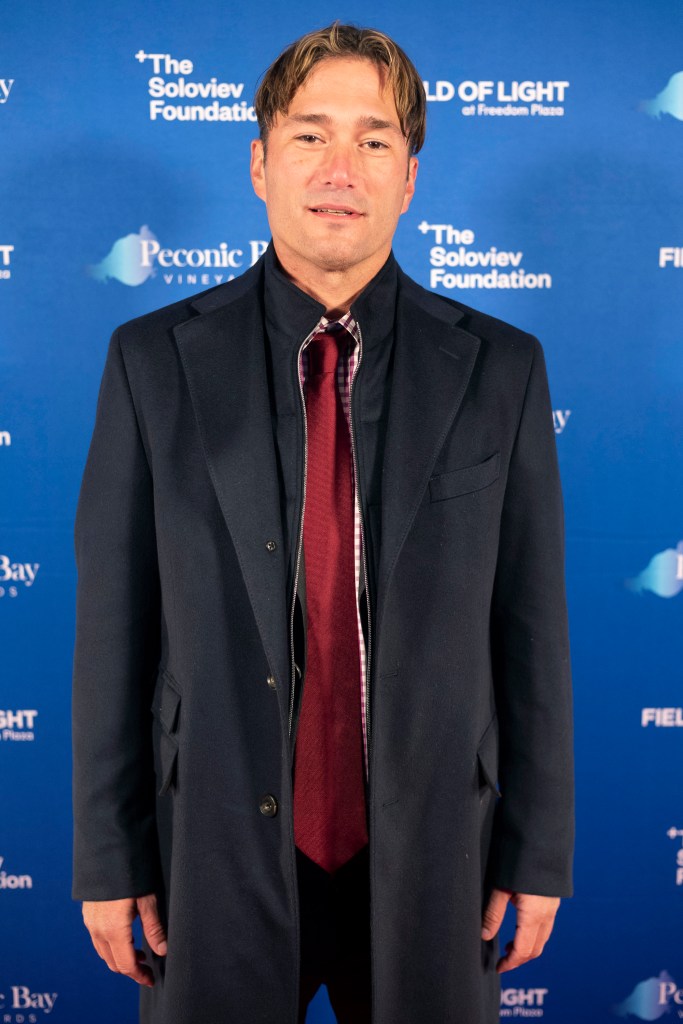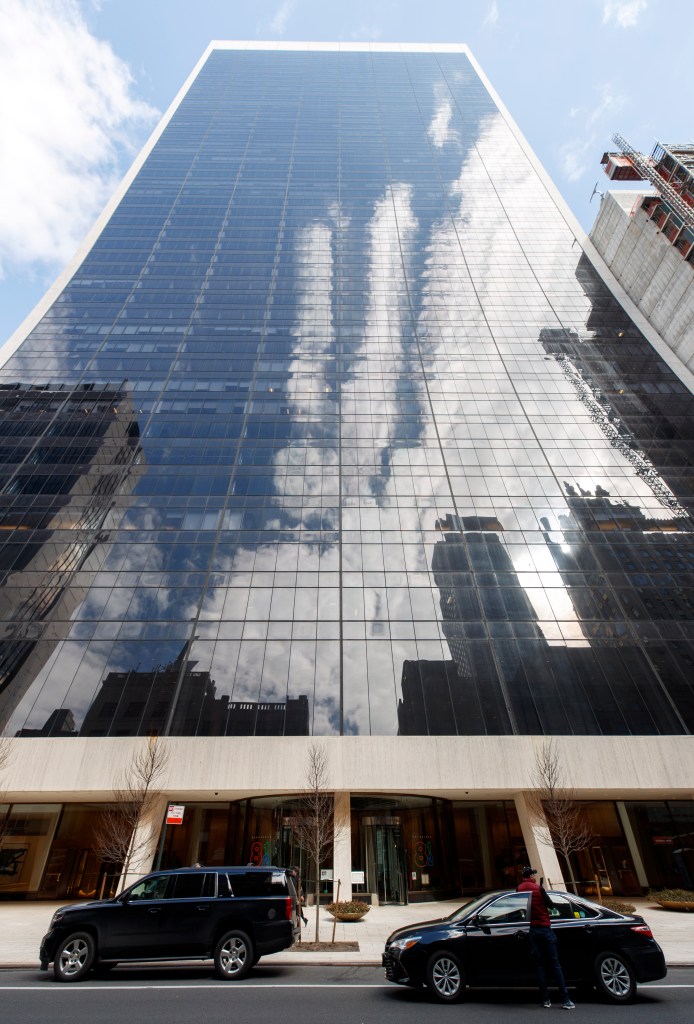Sheldon Solow was a brilliant but often bad-tempered developer best known for the swooping trophy office tower at 9 W. 57th St. He also owned a real estate empire that included luxury apartment buildings on the Upper East Side and nearly seven vacant acres south of the United Nations.
After passing away during the 2020 pandemic, his son, Stefan Soloviev, now 48, was suddenly in charge of billions in Big Apple real estate and facing tremendous estate taxes. But to the Manhattan real estate industry, Soloviev was an outsider, an eccentric, a mystery.
As a younger man, after butting heads one too many times with his dad, he changed his last name to that of his bricklayer grandfather, left Manhattan and moved to Arizona with his new wife. There he created an empire of his own. Today, he is one of the nation’s largest landowners, with 700,000 acres and numerous businesses sprawled across the country.

Known for his colorful personality and fathering an unconfirmed number of children (it’s more than 20, according to the Real Deal), The Post tracked down Soloviev at a Starbucks in Delray Beach, Fla., for a rare in person interview about his past, his focus on family and his new life as chairman of the rebranded Soloviev Group.
Family matters
“You and your brothers tease me because I’m the only one who orders Lemon Loaf,” said Soloviev as he re-upped his triple-iced grande order.
“Even the workers make fun of him,” added Quintin, his 21-year-old son.
A shade taller but built like his lanky dad, Quintin goes everywhere with his father, as his right hand and advisor. Both sport golden brown hair that curls in the humidity.
Famously casual, Soloviev now dons a suit and tie in his Manhattan boardroom, but down here, he is back to basics in boardshorts topped by a Crossroads Agriculture jersey (one of his companies) and a navy blue lanyard emblazoned with “Soloviev” that swings with a clump of keys. His wrist and arm are packed with tattoos: reminders of women, his children and western towns. A bear and a Route 33 sign are for his special connection to Sacramento, Calif., along with train tracks for his own railroad spurs. His approach to business, like his tattoos, is sometimes equally reminiscent.
His western beef operation is named Quintin City Ranch, while a wine brand is named after daughter Krissie. Soloviev wanted to name it after another child, Remy, but of course, there were trademark issues. His son Hayden, a junior at NYU who prefers a suit and tie to his dad’s Margaritaville vibe, runs the family’s Atlantic Region agricultural conglomerate, which includes their Long Island operations.
“I will continue to back up everything I say, and I will continue to thrive as a person and as a company. We will continue to excel.”
Stefan Soloviev
His younger brother, Nikolai Solow, is developing residential projects in Austin, Texas, while older sons are in charge of landscape operations in Florida and Long Island. Their Twelve Bridges construction company, founded in Sacramento, will someday build upscale homes on the North Fork of Long Island where they own 1,000 acres with a boutique hotel, a marina, wineries, a peach orchard, a Christmas tree farm and nurseries plus the growing landscaping division.
But Soloviev’s perpetual sidekick, Quintin, is next in line to run the company. “He’s obviously not there yet,” Soloviev said. “But I do believe he has the ability to take this all over from me one day.”
If that all sounds rather removed from New York, it is. His primary businesses include Crossroads Agriculture and Weskan Grain, which have operations in western Kansas, eastern Colorado and New Mexico, where they grow grains and raise beef. They also handle bulk grain transfers and storage, with two railroad spurs that facilitate bringing grain to mills and ports. Transport ships are on his wish list. Soloviev used to grow all the grain but now leases much of the acreage to other farmers along with solar and wind turbine ventures.
There’s also a metal mine in Nevada and an under-development hydroponic facility in Canada. In Florida, Soloviev owns upstate orange groves and retail shops in Delray Beach.
“Ask anyone around the plains, from Wyoming to New Mexico, everyone’s heard of me,” Soloviev said.

But Soloviev insists that he’s still focused on keeping his family’s Manhattan footprint thriving.
In his office at 9 West overlooking Central Park, Soloviev meets with and conducts building tours with his CEO Michael Hershman, CBRE leasing agents and many current and prospective tenants that have brought the building to nearly 100% occupancy. He’s adding $45 million in new amenities to the trophy tower where he’s also opened the family foundation’s art museum to the public.
“The main reason I’m not selling is because I know how bad everyone else wants it,” he said of their $500 million art collection, which includes works by Matisse, Miró, Basquiat, Giacometti, van Gogh and Modigliani. But because there was no estate planning, Soloviev was forced to sell all but one of his father’s luxury rental properties to pay the estate taxes.
Meanwhile, he’s actively developing the 6.7 acres of weed-strewn lots they held by the East River dubbed Freedom Plaza. When completed it will mix affordable housing with two hotel brands, 4.7 acres of public park, a “Freedom Museum” that will display a hunk of the Berlin Wall and (if blessed by New York State) a world class casino with partner Mohegan.
Making the mogul
Soloviev spent a lot of time around the Freedom Plaza site as a teen. Although educated in private schools, Soloviev was an independent kid. Starting at the age of 12, with a bus pass in hand, he wandered the city in the late-1980s from his First Avenue apartment. He played rough, Canadian-style ice hockey in his middle and high school years while on teams in both Connecticut and New York. He practiced football at St. John’s University in Queens, and in the summers, he surfed waves and bussed tables in the Hamptons. He says he and his brother never had trust funds and had to earn their pocket money.
His mother is Mia Fonssagrives, a fashion designer and acclaimed sculptor who once dressed Elizabeth Taylor. His Swedish grandmother was a model who married the French dancer turned fashion photographer, Fernand Fonssagrives, and Soloviev still visits many relatives in Sweden. Later in life, Fonssagrives married the American photographer Irving Penn.
“Irving was extremely successful — cold and very, very respectful to me,” he said. “He was terrified of my father, really terrified of my father, 100%.”
He remembers his biological grandfather, Fernand, more fondly.
“He was amazing,” he said. “When I was a teenager, my local East Hampton friends and I were sitting around a table about to go to a beach party, and he starts talking. He’s got this French accent and we sat there till three in the morning and never went out that night. He could captivate a room.”
He credits those experiences with his ability to speak to the common man and soothe the wary Midwestern farmers who had heard stories about “the Russian” or “the New Yorker” buying land and growing grain in their counties.
“They wouldn’t trust me at first, but then I would bring the blond kid in,” he said, referring to the then-7-year-old Quintin, who showed a special interest in their tractors.
In that same way, Soloviev says he plans to conquer New York in his own way, on his own terms and apparently with his own family — even if that earns him a reputation for being unorthodox.
“I will continue to back up everything I say, and I will continue to thrive as a person and as a company,” he said. “We will continue to excel.”














